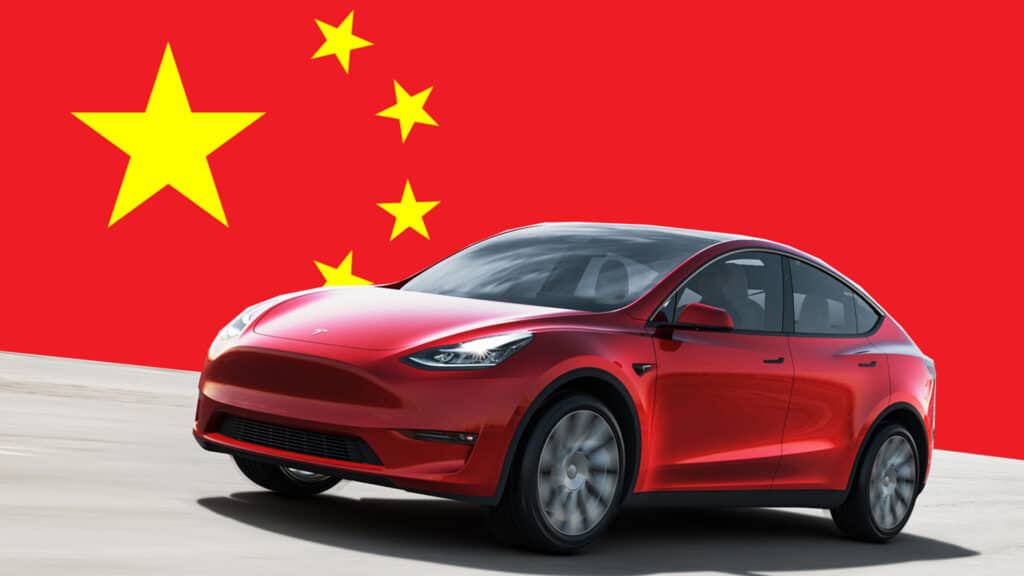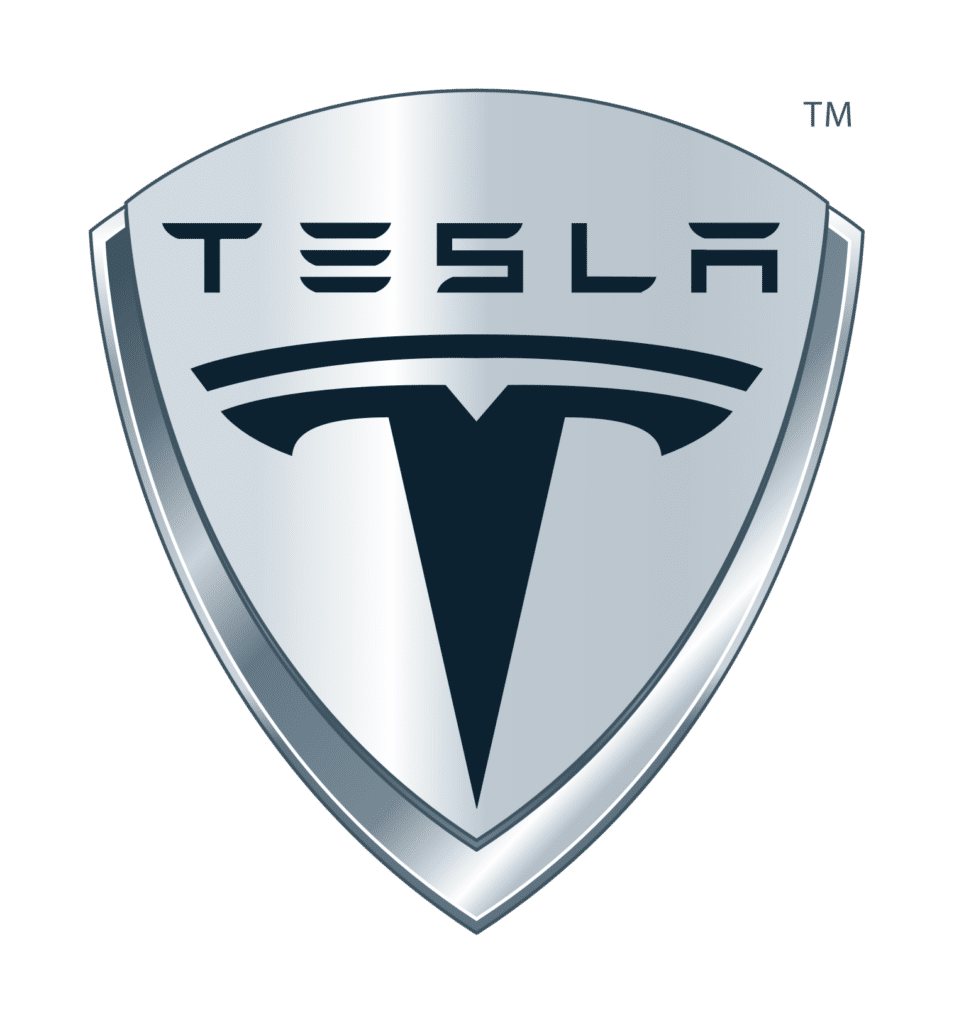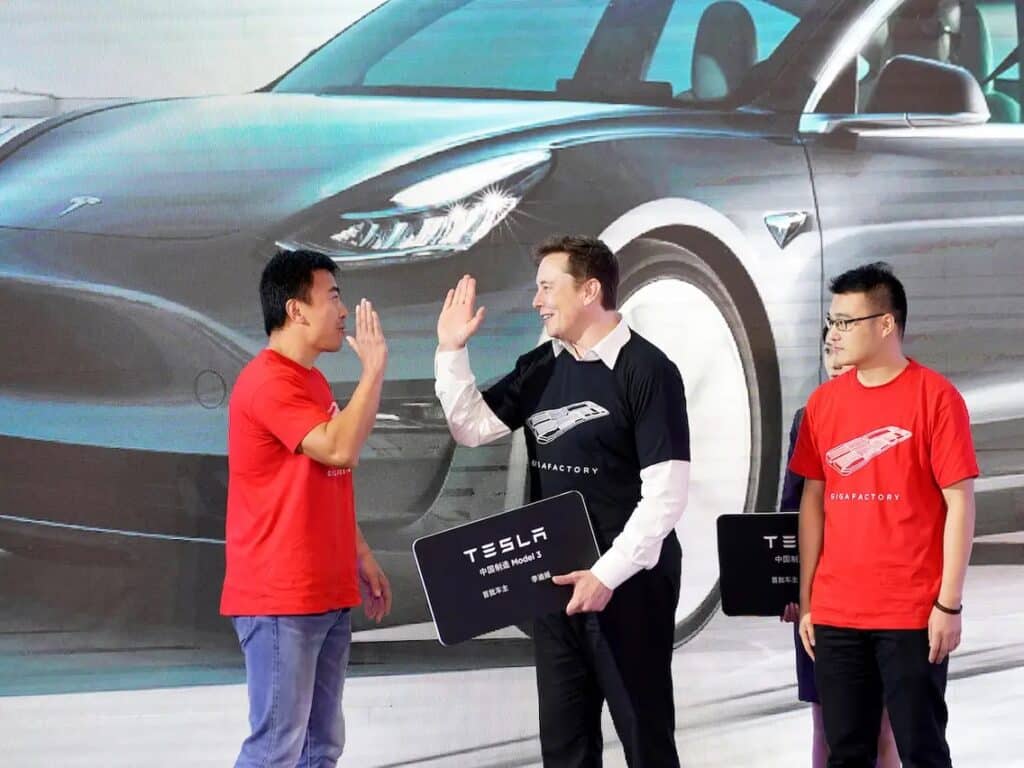Tesla (NASDAQ: TSLA) has agreed, with all the other EV manufacturers in China, not to engage in price competition. They all are, instead, to engage in socialist competition. The supposed meaning of this is that they compete by quality, by service to the consumer and so on. The actual meaning is more often not to compete at all. “Tesla Inc. and China’s top automakers pledged to maintain fair competition and avoid “abnormal pricing” in the world’s biggest EV market, signalling a possible end to a price war that’s rattled the industry this year.” Those competitors might include Nio (NASDAQ: NIO) Xpeng (NYSE: XPEV) and so on. But we’ll concentrate upon Tesla here simply because we’ve got to choose the one.
The Chinese market for Tesla
China is important to Tesla – it is, as there, the world’s biggest EV market. That domestic market is also one of the most viciously free market ones in the world. Yes, sounds strange when we think of the above agreement not to compete on price but this is still so. There are 16 companies involved in this pledge and there really isn’t any other EV market with 16 players serious enough to have to get to an anti-competitive meeting.

But OK, so no excessive discounting and all that. Will this aid Tesla or hinder it? And that’s where it all gets more than a little complicated. For standard theory and observed experience tell us that the effect will depend.
The most obvious point to make is that yes China is important to Tesla: “China’s auto market has made over 30 percent of contribution for Tesla’s global sales and over 20 percent of revenue in the first quarter of 2023,“ Yes, that’s important, we need to pay attention here.
Tesla’s position in China and price competition
Clearly, if price competition is not to be allowed – or even just dampened – then margins on each vehicle sold will be better. No one’s allowed to slash prices and so kill everyone’s profit margin while doing so.

But margin per vehicle – gross margin per unit shipped out the door – is only part of car making economics. The overheads are immense. So, there has to be enough volume of production that the total sums of all gross margins cover those vast, vast, overheads. Which is why people do slash prices in order to gain sales volume of course. So, if the prevention of price slashing reduces sales – an obvious likelihood – then it’s entirely possible that net losses increase, even after we’ve increased margins on each vehicle sold.
In more technical terms we’re in a world where average and marginal pricings can conflict.
The economics of Tesla in China
That’s not the end of the Tesla, Nio, BDY etc problem though. Those who are profitable at current sales volumes (Tesla is, we think, in China) benefit hugely from lowering their margin on their last few pieces of production. Because once those overheads are covered then the gross margin on each sale is the net margin that flows through to the bottom line. Those who are still struggling to achieve volume don’t benefit from this effect – in fact their losses increase, horribly, by not being able to make those marginal sales that go to Tesla.

So, whether Tesla benefits or not from this agreement not to have a price war is one of those things where we don’t know the answer. If price maintenance limits sales, then it might well be detrimental to TSLA. Which does rather leave us wondering what the effect will be upon TSLA stock as a result of this.
And will Tesla stick with the Chinese price agreement?
We also have the one further layer to this. Whatever’s been signed with the government, well, how much is anyone going to pay too much attention to it? Actual price wars would be too obvious to continue. But there are, as the man said, many ways of skinning a cat. Extended warranties, option upgrades without price increases, lower guaranteed servicing prices and on and on. We would, in fact, guarantee that such things will happen if the price agreement becomes a binding constraint. At which point who do we think will play that game better? The foreigners or the locals?
The point to grasp here is that Tesla may or may not benefit from this agreement not to indulge in price wars. The base corporate effect depends upon where Tesla is on its own cost curve – is the marginal production near pure profit or not? Then upon how much the pricing restrictions impact upon those marginal sales. Finally, there’s that point of how much everyone really acts upon the proposed restrictions.
Our best guess here is that this will actually have very little effect on real world business operations and numbers. Simply because anyone who finds the agreement doing so will compete on one of the other axes available, other than sticker price.